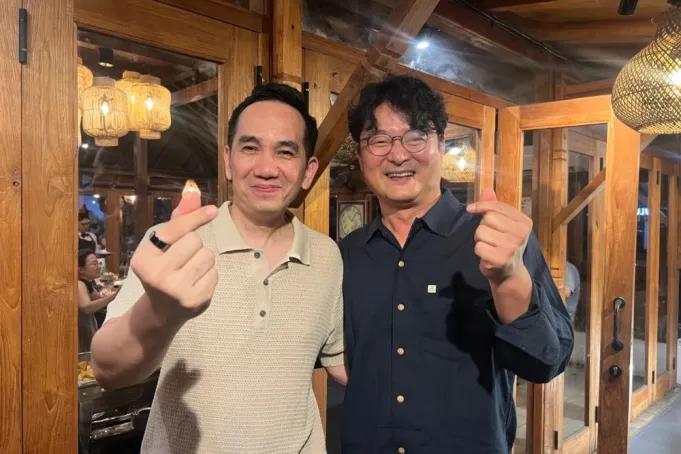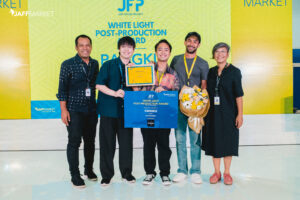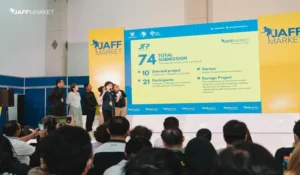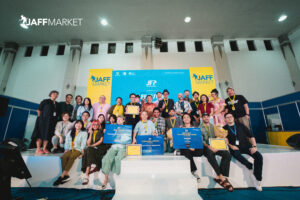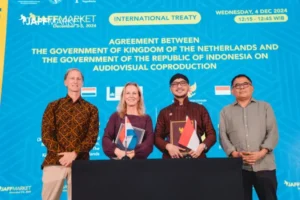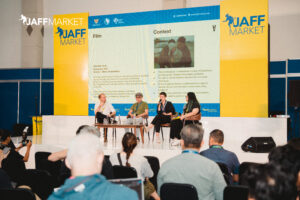The Producers Guild of Korea (PGK) and the Association of Indonesian Film Producers (APROFI) are deepening their collaboration following their renewed memorandum of understanding, at the inaugural JAFF Market in Yogyakarta, where horror projects dominate the slate of potential co-productions.
The partnership, which first began in 2013, comes at a time when Indonesia‘s film industry is experiencing significant growth. “The Indonesian film market has reached 74 million admissions this year with three weeks still to go,” says APROFI chair Edwin Nazir (“The Science of Fictions”). “So even though we have 280 million [population] it’s still just very big room to grow.”
PGK president Lee Dong-ha (“Train to Busan”) sees the timing as strategic. “The Indonesian film industry has become one of the most dynamic in the world, and South Korea has become a mature place, especially in terms of awareness. That’s naturally why the MoU [Memorandum of Understanding] between the two organizations was renewed after the pandemic.”
Among the eight Korean projects seeking Indonesian partners at JAFF Market are:
Moon Sung Joo’s romantic comedy “The Romantic Lucky” (Blue Jeans Pictures) about a man trapped in a time loop after winning the lottery; Yom Dongbok’s adventure-horror “8ight” (Twinkle Star Entertainment) following BMX riders encountering supernatural forces in Java; Lee Eun Kyoung’s occult horror “The Shrine 3” (Mystery Pictures) featuring a Korean shaman battling Indonesian spirits; Kim Hyun Chul’s action-comedy “Husbands” (TPS Company) about two husbands teaming up to rescue their kidnapped family; Yohwan Kim’s black comedy “Nailed” (88 Avenue) about a desperate couple running a roadside car repair shop; and Lim Youngju’s horror-drama “Butterfly of the Equator” (Studio Artemis Korea) about mysterious deaths near a haunted cave. Studio Artemis Korea is also presenting “Last Wish,” a family drama about a workaholic father attempting to fulfil his family’s wishes after receiving a terminal diagnosis.
The projects are exploring collaborations with Indonesian talent and creative teams. Horror appears to be a key genre for potential collaboration. “About 70% of the projects being pitched are horror titles,” Nazir notes. “Horror is maybe at this moment easier to travel between Indonesia and Korea.”
Nazir emphasizes moving beyond traditional remake arrangements. “Most past collaborations were either Korean companies investing in Indonesian projects for the Indonesian market or remakes of Korean titles. We want to broaden the scheme – maybe Indonesian titles being remade by Korean companies, or developing projects together that have both Korean and Indonesian elements.”
“We hope that various attempts will be made to go beyond filling each other’s gaps,” says Lee. “At PGK, we want to restart various exchanges with overseas countries, and we thought APROFI was the first one. We hope that the growth of the film industry between the two countries is a sign of co-production that opens up a new future in the changing content industry.”
